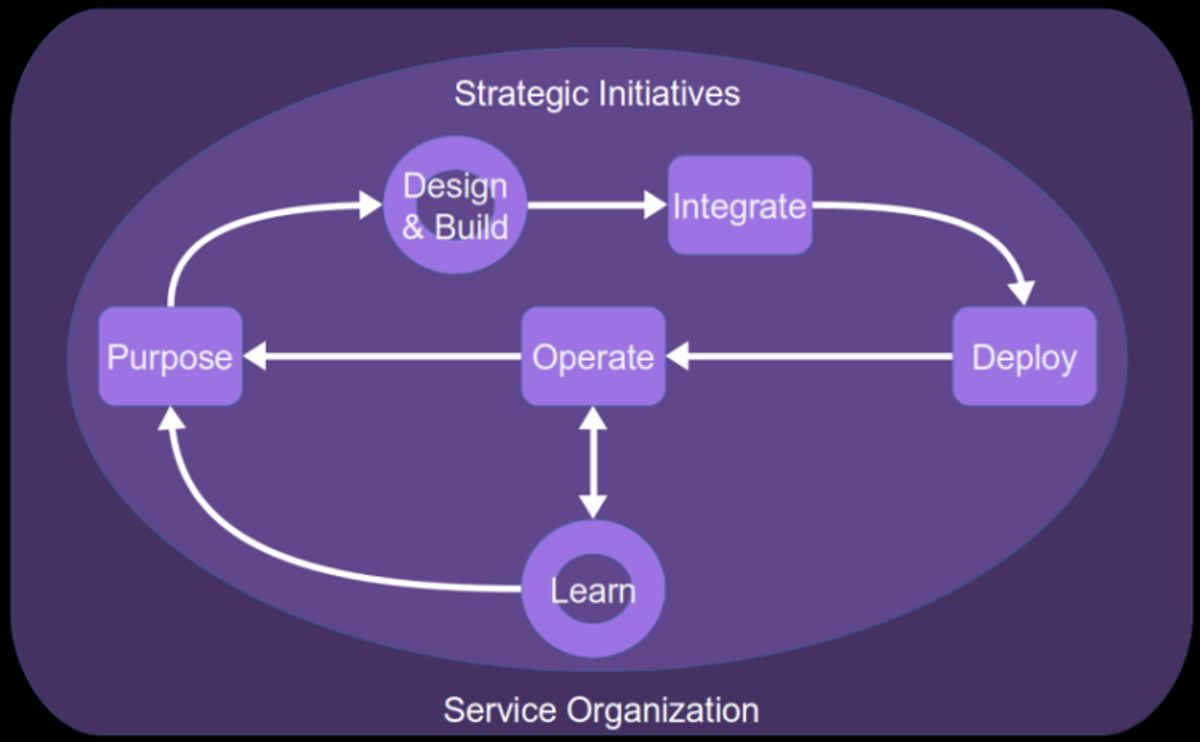In an era where customer service is rapidly evolving, AI-powered support systems stand at the forefront of this transformation, offering unprecedented opportunities for businesses to enhance their customer interactions. This article delves into the current landscape of AI in customer service, explores the symbiotic relationship between human expertise and AI capabilities, and anticipates the future of customer experiences shaped by artificial intelligence. As we navigate through the complexities and prospects of integrating AI into customer support, we uncover strategic insights that can provide a competitive edge to those ready to embrace this digital revolution.
Key Takeaways
- AI tools are appreciated for their speed and availability, but there's skepticism about their ability to improve customer satisfaction, especially for complex inquiries.
- Human-AI collaboration is essential for maximizing the potential of AI in customer service, with human oversight ensuring trust and effective use of technology.
- Inclusive service provision through AI is critical, and businesses must invest in certified tools and training to meet the needs of all consumer demographics, including the vulnerable.
- The future of customer experience with AI involves predicting consumer behavior, continuous improvement, and navigating the evolving landscape of consumer duty and AI integration.
- Strategic implementation of AI in customer service can lead to a competitive advantage, as evidenced by successful case studies and the importance of preparing for digital transformation.
The Current State of AI in Customer Service

Public Perception and Expectations
In the wake of the pandemic, customer service has undergone a significant transformation, with a marked shift to online interactions. Public expectations have risen accordingly, with a willingness to pay more for services that are perceived as reliable and inclusive. A recent study highlights the critical nature of these expectations:
- 80% of consumers emphasize the importance of businesses having a defined and independently certified service for vulnerable consumers.
- There is a clear expectation for brands to invest in tools and training to deliver high-quality support.
The digital transformation has not only changed how services are delivered but also raised the bar for customer satisfaction. AI's role in meeting these heightened expectations is pivotal, yet it must be leveraged thoughtfully to truly enhance the customer experience.
The table below succinctly captures the public's stance on customer service excellence and the importance of inclusivity:
As AI continues to permeate the customer service sector, understanding and aligning with these evolving expectations is essential for businesses aiming to stay competitive and foster customer loyalty.
The Disconnect Between AI Tools and Customer Satisfaction
Despite the recognition of AI's potential to enhance customer service, there is a notable disconnect between the deployment of AI tools and actual customer satisfaction. While AI is praised for its speed and availability, many consumers feel that it falls short when addressing more complex issues. A survey highlights this gap, with only 15% of respondents feeling that AI has improved their service experience, and a significant 41% believing it has made it worse.
The challenge lies not only in implementing AI solutions but also in ensuring they align with customer expectations and needs.
The following points illustrate the key concerns and perceptions:
- 35% of consumers see no benefits in using AI for customer service.
- 68% consider AI unsuitable for handling complex queries.
- There is a general sentiment that customer service standards have declined over the past two years.
This data suggests a pressing need for businesses to reassess how AI tools are integrated into their customer service strategies, ensuring that they complement rather than complicate the customer experience.
The Role of AI in Handling Simple vs. Complex Inquiries
The integration of AI into customer service has been met with mixed reactions. Speed of response and 24/7 availability are recognized as significant benefits, with AI's ability to provide instant answers to simple inquiries being particularly appreciated. However, the effectiveness of AI in addressing more complex customer needs remains questionable. A substantial portion of consumers, 68%, find AI unsuitable for handling intricate issues, suggesting a gap in AI's capability to manage nuanced interactions.
The challenge lies in designing AI systems that can discern between simple and complex inquiries, and know when to escalate to human agents for a more personalized touch.
Despite the potential for AI to streamline customer service processes, there is a clear need for a balanced approach. The following points highlight the current landscape:
- AI excels in dealing with straightforward, routine questions.
- Complex and sensitive matters often require the empathy and understanding of a human touch.
- There is a growing demand for AI tools that can learn from interactions and improve over time.
Organizations must navigate these realities to ensure that their AI-powered support systems enhance, rather than detract from, the customer experience. As AI tools become more embedded in our daily lives, the human element remains indispensable in fostering trust and ensuring customer satisfaction.
Bridging the Gap: Human-AI Collaboration for Enhanced Support

The Importance of Human Oversight in AI Interactions
While AI tools offer the promise of improved customer service through speed and availability, human oversight remains a pivotal element in ensuring these tools are used responsibly and ethically. The integration of AI in customer service must be approached with a balance of efficiency and empathy, safeguarding data privacy and maintaining transparency. This balance is not only crucial for customer satisfaction but also for building trust and consumer confidence.
- AI can provide 24/7 responses and reduce the need for customers to seek answers elsewhere.
- However, 35% of consumers see no benefits in AI for customer service, and 68% find it unsuitable for complex issues.
- Human oversight can help tailor AI interactions to individual customer needs, fostering a more personalized experience.
The collaboration between AI and human agents should be seen as an opportunity to enhance customer experience, listening to customer needs and ensuring AI is effectively meeting them.
Investing in human-AI collaboration is not just about technology; it's about creating a service culture that values human touch and understands the limitations of AI. Organizations must train and equip their teams to work alongside AI, ensuring that the technology is an enabler, not a replacement, for quality human interactions.
Training and Equipping Teams for AI Integration
As AI becomes increasingly embedded in customer service, the need for adequate training and equipping of support teams cannot be overstated. It's essential that employees understand not just how to use AI tools, but also the underlying principles that drive them. This knowledge enables teams to work seamlessly with AI, ensuring that the technology enhances rather than hinders the service experience.
To achieve this, a structured approach to training is necessary. Here are some key steps to consider:
- Introduction to AI and its capabilities within customer service
- Hands-on training with the specific AI tools being implemented
- Continuous learning sessions to keep up with AI advancements
- Scenario-based training to handle complex customer interactions
By focusing on these areas, organizations can foster a culture of continuous improvement and innovation, where AI tools are used to their full potential.
Moreover, equipping teams with the right tools is just as important as training. This includes access to up-to-date software, comprehensive databases for AI learning, and feedback mechanisms to refine AI interactions. With the right preparation, customer service teams can transform AI from a mere tool into a strategic asset.
Building Trust and Confidence in AI-Powered Solutions
Building trust in AI-powered customer service solutions is essential for their successful adoption. Trust acts as a differentiator in the competitive landscape, where customers seek not only efficiency but also reliability. To achieve this, companies must focus on humility and accountability, ensuring that AI tools are designed with ethical considerations and a customer-centric approach.
- Humility and accountability
- Ethical considerations
- A customer-centric, trusted approach
Users must feel in control of their interactions with AI, and trust must be built at every stage of the customer journey. This involves transparent communication about how AI is used and the benefits it brings, as well as providing options for customers to easily reach human support when needed.
By fostering an environment where AI is seen as a supportive tool rather than a replacement for human interaction, businesses can create a more positive and trusting relationship with their customers.
Leveraging AI to Meet the Needs of Vulnerable Consumers

Inclusive Service Provision Through AI
The integration of AI into customer service has the potential to offer inclusive support to a broader range of consumers. AI can provide 24/7 assistance, addressing the need for speed of response and constant availability, which is particularly beneficial for those who may require support outside of traditional business hours. However, the effectiveness of AI in delivering an enhanced customer experience is still under scrutiny.
While AI is praised for its ability to handle simple complaints efficiently, there is a growing concern that it may not be well-suited for more complex issues. This highlights the necessity for AI systems to be designed with the capability to recognize and escalate intricate inquiries to human agents.
The table below illustrates the public's perception of AI in customer service based on recent findings:
It is clear that while some consumers acknowledge the advantages of AI, a significant portion remains unconvinced of its value in improving service standards. As AI continues to evolve, it is imperative that service providers listen to customer feedback and refine their AI strategies to cater to diverse needs.
Certification and Standards for AI-Enhanced Customer Service
In the realm of customer service, the integration of AI tools has been met with both optimism and skepticism. Certification and standards play a pivotal role in harmonizing AI applications with consumer expectations and ensuring a consistent level of service quality. Organizations seeking to earn trust and demonstrate commitment to excellence are increasingly turning to certifications like the BSI Kitemark for AI and Digital Products.
Organizations certified to the Kitemark must exhibit a dedication to continuous improvement, risk mitigation, and exceptional customer experience. This includes showing how AI is managed and integrated into their customer service strategies.
The criteria for such certifications are rigorous, encompassing various aspects of customer service:
- Consistent delivery of quality service
- Effective complaint management
- Adaptation to digital transformation
- Proactive steps towards customer satisfaction and loyalty
These standards not only reassure consumers but also guide businesses in the responsible deployment of AI, ensuring that the technology serves as a force for good in the customer service domain.
Adapting AI Strategies for Diverse Customer Demographics
In the realm of customer service, AI strategies must be tailored to address the unique needs of diverse customer demographics. Adapting AI tools to cater to a wide range of consumers is not just a technical challenge, but a strategic imperative. Companies that leverage AI effectively can ensure inclusivity and enhance satisfaction across different segments of their customer base.
- Use feedback loops and analytics to understand responses from various demographics.
- Customize AI responses to reflect cultural and linguistic nuances.
- Implement user-friendly interfaces that accommodate varying levels of digital literacy.
By prioritizing the adaptation of AI strategies to diverse demographics, businesses can foster a more inclusive environment that resonates with all customers, regardless of their background.
The integration of AI in customer service must be done with a keen awareness of the demographic differences that exist among consumers. This includes recognizing and addressing the distinct preferences, behaviors, and expectations that can vary widely across different groups. The goal is to create AI-powered solutions that are as versatile and responsive as the customer base they serve.
The Future of Customer Experience: Opportunities and Challenges

Predicting Consumer Behavior with AI
The advent of AI in customer service has opened up new frontiers in understanding and predicting consumer behavior. AI's predictive analytics can now anticipate customer needs and preferences, often before the customer is fully aware of them. This proactive approach can lead to more personalized service and improved customer satisfaction.
- AI algorithms analyze historical data to identify patterns and trends.
- Machine learning models adapt over time to improve accuracy.
- Predictive insights enable targeted marketing and service adjustments.
By leveraging AI to predict consumer behavior, businesses can craft strategies that are not only responsive but also anticipatory, aligning with consumer desires in a dynamic marketplace. This strategic foresight is crucial for staying ahead in a competitive environment.
However, the challenge lies in balancing the predictive capabilities of AI with the nuanced understanding that human agents provide. It's about creating a synergy where AI informs and empowers human decision-making, ensuring that the customer experience remains at the heart of service innovation.
Continuous Improvement and Risk Mitigation
In the age of AI, risk mitigation has become a top priority for businesses. The integration of AI into customer service processes necessitates a proactive approach to managing potential risks and ensuring the safety and satisfaction of consumers. Organizations must be agile, continuously improving their AI systems to keep pace with technological advancements and evolving customer expectations.
- Regularly assess and update AI algorithms to prevent biases and errors.
- Implement robust data protection measures to safeguard customer information.
- Foster a culture of transparency and accountability within AI operations.
Organizations are recognizing the need to adapt to digitalization and the importance of continuous improvement in their customer service strategies. This includes managing AI effectively, which is becoming an integral part of service delivery.
Certification standards, such as the Kitemark, require companies to demonstrate their commitment to customer satisfaction and loyalty, as well as their efforts in risk mitigation and continuous improvement. These standards are becoming increasingly relevant as they reflect the management of AI within organizations.
The Evolving Landscape of AI and Consumer Duty
As the landscape of AI in customer service continues to evolve, organizations are recognizing the need to balance technological advancements with consumer duty. The integration of AI must be approached with a commitment to ethical standards and consumer rights. This is not only a matter of regulatory compliance but also a strategic move to foster long-term customer relationships.
The Consumer Duty guidelines emphasize the importance of clear and fair treatment of customers. AI tools, while offering efficiency and availability, must align with these principles to ensure that they contribute positively to the customer experience. The table below illustrates the contrasting perceptions of AI's impact on customer service:
Organizations must navigate this complex terrain by not only investing in AI but also in the frameworks that uphold consumer trust and confidence. The goal is to leverage AI not just as a tool for operational efficiency, but as a partner in delivering a customer service experience that is both technologically advanced and human-centric.
Strategic Implementation of AI for Competitive Advantage

Investing in the Right AI Tools for Customer Service
Selecting the appropriate AI tools for customer service is a critical decision that can significantly influence the overall customer experience. Investing wisely in AI technology can lead to improved efficiency, customer satisfaction, and ultimately, a competitive edge. However, it's essential to consider not just the capabilities of the AI software but also how it aligns with the company's customer service philosophy and the specific needs of its customer base.
When evaluating AI tools, businesses should assess several key factors:
- Compatibility with existing systems
- Scalability to accommodate growth
- Compliance with industry standards
- The ability to provide personalized experiences
It's also crucial to look at the support and training that comes with the software, ensuring that customer service teams are fully equipped to maximize the benefits of AI integration. Here's a snapshot of some top AI tools for customer support as identified by Help Scout:
The right AI solution should not only resolve customer issues more efficiently but also enhance the overall service experience, turning every interaction into an opportunity for growth and learning.
Case Studies: Success Stories of AI in Customer Support
The integration of AI into customer support has yielded significant success stories, showcasing the potential for improved efficiency and satisfaction. Businesses have harnessed AI to enhance customer acquisition, demonstrating the technology's ability to streamline processes and provide timely solutions. For instance, companies have reported a marked increase in the speed of response and availability, with AI-powered tools offering 24/7 support to address simple complaints effectively.
However, the success of AI in customer support is not just about speed; it's about the quality of interactions. Organizations that have strategically implemented AI report a more nuanced understanding of customer needs, leading to tailored experiences that foster loyalty and trust. The following table highlights key metrics from various case studies that illustrate the positive impact of AI on customer support:
The key to these successes lies in the balance between AI automation and human insight. By ensuring that AI tools are complemented by human oversight, businesses can address the complexity of customer inquiries while maintaining a personal touch.
As we delve into specific case studies, it becomes evident that AI is not a one-size-fits-all solution. Each business must assess its unique customer service challenges and opportunities to leverage AI effectively. The stories of triumph are numerous, with companies experiencing tangible benefits from AI integration, from reduced search times for information to a more inclusive service provision.
Preparing for the Next Wave of Digital Transformation
As organizations brace for the next wave of digital transformation, the strategic implementation of AI in customer service becomes a pivotal focal point. Businesses must not only invest in AI but also adapt and evolve with its advancements to maintain a competitive edge. The integration of AI tools must be agile, ensuring that they can quickly adapt to new market demands and consumer behaviors.
- Identify emerging AI technologies and assess their relevance to your customer service goals.
- Develop a roadmap for integrating new AI capabilities in alignment with business objectives.
- Foster a culture of continuous learning and innovation among customer service teams.
The key to success in the forthcoming digital era lies in the ability to preemptively harness AI's potential to enhance customer experiences while remaining vigilant to the ethical and practical implications of its deployment.
As we look towards the horizon, it's clear that the organizations prepared to invest in understanding and implementing AI effectively will be the ones leading the charge in customer service excellence. The journey ahead is not without its challenges, but with a strategic approach, the opportunities for growth and transformation are boundless.
Conclusion
In the evolving landscape of customer service, AI-powered support stands at a crossroads between efficiency and personalization. While the speed and availability of AI are undeniable advantages, the research by BSI highlights a critical need for balance. Organizations must invest in the right AI tools and prioritize human involvement to address complex queries and maintain consumer trust. The introduction of the Kitemark for customer service excellence underscores the importance of consistent, high-quality support that caters to the diverse needs of consumers, including the vulnerable. As we look to the future, it is clear that the successful integration of AI in customer service will require a collaborative effort, with a focus on continuous improvement and a commitment to a positive customer service culture. This approach will not only meet but exceed customer expectations, transforming inquiries into opportunities for brand loyalty and growth.
Frequently Asked Questions
What are the perceived benefits of AI in customer service?
The perceived benefits include improved speed of response, 24/7 availability, and the reduced need to search for answers elsewhere. However, there is also a belief that AI tools alone are not sufficient to enhance customer experience.
How do consumers feel about AI handling complex customer service inquiries?
While AI is considered ideal for simple complaints by 42% of consumers, a significant 68% believe that AI is unsuitable for handling complex queries.
What is the public's confidence level in AI-enhanced customer service?
Only 15% of Britons believe AI has enhanced their customer service experience, and 41% say it has made it worse. This indicates a need for improved AI tools and strategies.
What is the role of human involvement in AI-powered customer service?
Human involvement remains critical to make the best use of AI technology, build trust, and ensure consumer confidence. It is essential for organizations to collaborate with customers and listen to their needs.
What is the importance of certification and standards in AI-enhanced customer service?
Certification, such as the Kitemark, requires organizations to demonstrate good customer service, complaint management, and a commitment to continuous improvement, including the management of AI.
What is the significance of inclusive service provision in AI-powered customer support?
Inclusive service provision is vital to meet the needs of vulnerable consumers. 80% of survey respondents highlighted the importance of businesses having a defined and independently certified inclusive service.



